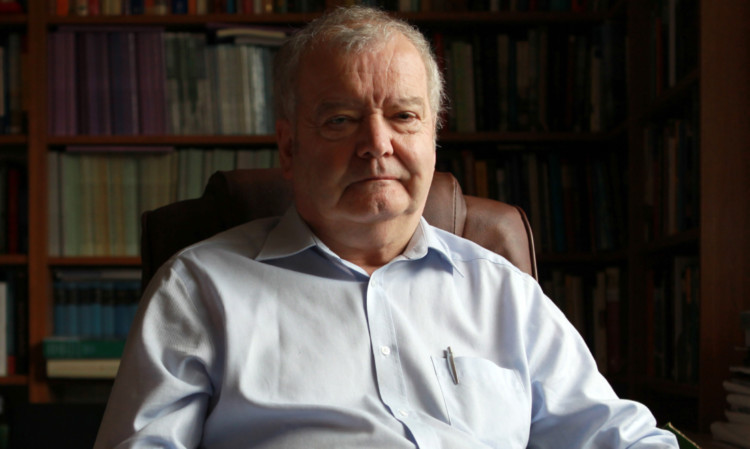
Scottish historian Tom Devine analyses the decision that will shape the nation.
Where Scotland stands today is an accident, an accident of history. But it is enormous.
A Yes vote in September wouldn’t just be the most significant development in British history since the union in 1707, it would be the most significant development in over 400 years since the union of the crowns in 1603.
It will be a colossal issue.
One immediate consequence would be that David Cameron would have to resign the next day. It’s unimaginable that the chief executive, having lost a large part of the business, would not have to resign.
On the other hand if there’s a No vote historians of the future will look at the referendum as another example of the elasticity of the union. That it’s able to adjust to even this mortal threat to its existence.
Though if, as seems likely, it’s a narrow victory for the No campaign then I expect in five to 10 years it will take place all over again.
The unionist camp are, of course, determined to secure an overwhelming victory but it’s beginning to look like it will not be a crushing defeat for the Yes camp, and that will raise the question of whether the September vote is just one phase of an ongoing issue.
There has been turbulence in the union before.
During the first half-century of its existence some of the economic expectations of the union were not realised and a lot of the vitality of the Jacobite movement derived from anti-unionism.
But from that period through to the late 20th Century the economic benefits came through, Scots penetrated the growing British empire on an unprecedented scale, England didn’t interfere much in Scottish matters and, though Westminster was theoretically sovereign, Scotland was effectively semi-independent.
Some intellectuals feared Scotland would become like the rest of Britain but it didn’t, a dual identity emerged in which people could be Scottish and British.
Those identities have ebbed and flowed since.
In the immediate aftermath of World War 2 British-ness was in the ascendant. In the last 10-20 years Scottish-ness has been so but the British identity is still there, it’s just not as obvious.
If September produces a Yes vote that identity will be ruptured. The world is amazed that could happen.
I’ve taken lots of calls from international media who can’t get their head around the notion that a nation that had huge power around the world and which has been one of the biggest players in recent history could break up.
But one thing international observers are impressed by is the manner in which the independence debate has played out.
I recently returned from Sri Lanka, a country that is recovering from a horrible civil war.
They have nothing but admiration for the way Scots are going about this campaign the constant dynamic of debate, getting as much information as possible into the public domain.
If nothing else, come September we should be proud of our nation and the way we have gone about this debate.

Enjoy the convenience of having The Sunday Post delivered as a digital ePaper straight to your smartphone, tablet or computer.
Subscribe for only £5.49 a month and enjoy all the benefits of the printed paper as a digital replica.
Subscribe